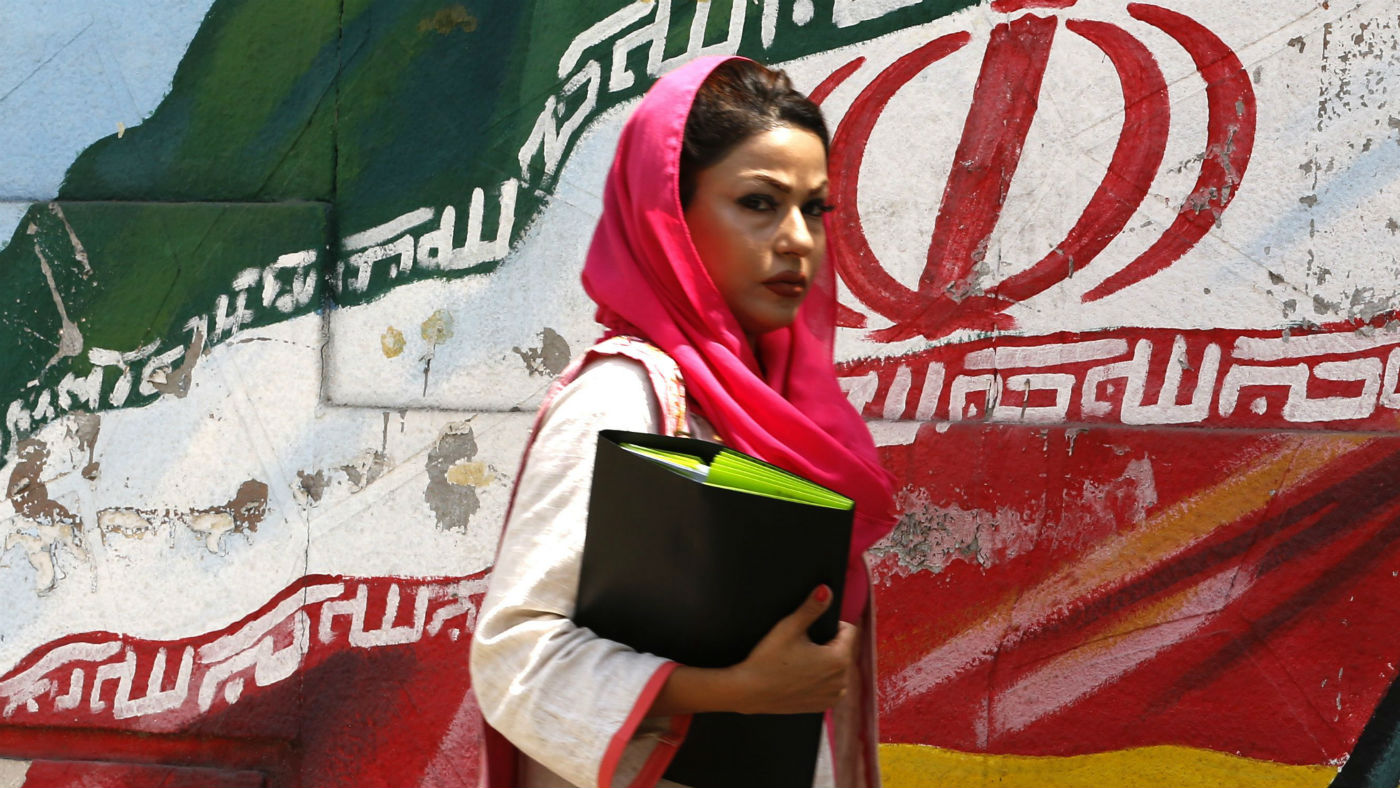What now for Iran as US sanctions come back into force?
Immediate economic hardship could have longer-term political consequences

A free daily email with the biggest news stories of the day – and the best features from TheWeek.com
You are now subscribed
Your newsletter sign-up was successful
The first round of US sanctions against Iran come back into effect this week, as the repercussions of Donald Trump’s decision to pull out of the 2015 nuclear deal begin to hit home.
Yesterday saw a range of economic sanctions brought in on automobiles, gold, and steel, with a heftier tranche of restrictions on Iran's oil industry set to come into effect from the beginning of November.
What will the economic impact be?
The Week
Escape your echo chamber. Get the facts behind the news, plus analysis from multiple perspectives.

Sign up for The Week's Free Newsletters
From our morning news briefing to a weekly Good News Newsletter, get the best of The Week delivered directly to your inbox.
From our morning news briefing to a weekly Good News Newsletter, get the best of The Week delivered directly to your inbox.
The prospect of renewed sanctions has already caused Iran’s currency, the rial, to lose two thirds of its value against the dollar in the past year, triggering inflation and a wave of protests.
On Sunday, Tehran unveiled emergency measures to stave off a currency collapse amid a new wave of demonstrations over deteriorating living standards.
The Times says the rallies were small “but highlighted widespread discontent, and the authorities have reacted to try to calm fears of an imminent economic collapse”.
The Iranian Central Bank implicitly acknowledged the scale of the crisis it was facing by announcing new currency measures, including the lifting of currency controls imposed in the spring to try to stop the outward flood of hard currency.
A free daily email with the biggest news stories of the day – and the best features from TheWeek.com
And the political?
The immediate economic impact of renewed sanctions is likely to be followed by far-reaching political consequences.
The nuclear deal had presented Iran with an opening to the West after years of tensions and deepening isolation, “but with that window now closing, Iran's theocratic leadership is reverting to the vows of “resistance” and self-sufficiency that have animated the regime for nearly four decades” reports the Washington Post.
Iran’s moderate President Hassan Rouhani, who championed the nuclear deal and gambled his political future on rapprochement with the West, has adopted a far more hard-line approach since Trump announced his decision.
After months of increasingly aggressive rhetoric, last week the Iranian military launched a series of aggressive naval exercises in the Strait of Hormuz, backing up threats that if the sanctions kicked in hard, Tehran would disrupt shipping on the world’s most important oil-trading lane.
Could sanctions really bring down the regime?
Tensions between the two countries have been exacerbated by those in Tehran who believe the Trump administration’s ultimate goal is regime change in Iran.
US Secretary of State, Mike Pompeo, hinted as much when he addressed reporters yesterday during his tour of Asia.
“We’re hopeful that we can find a way to move forward but it’s going to require enormous change on the part of the Iranian regime,” he said.
The Times’ Richard Spencer, says “the battle between the Trump administration and the clerical regime in Tehran pits the irresistible force against the immovable object”.
He says many analysts insist the new sanctions “will do little to change minds in the clerical leadership” given that “the conventional view is that hostility causes Tehran to double down, even to its own detriment”.
The hardship brought about by previous US sanctions cannot be underestimated says the Washington Post. Prices rose, supplies of lifesaving medicines dwindled, and middle- and working-class Iranians suffered while well-connected regime elites grew rich through the black market.
“But this should not give regime-change proponents in Washington too much cause for optimism” warns the paper; “Iran's leaders know how to circle the wagons and preserve power, even as public disquiet grows”.